Payer Update, April 2020
Coronavirus Policy Changes and Medicaid
By George Oestreich
States and the federal government are pursuing a variety of policy changes to help Medicaid programs respond to the coronavirus emergency. Following the federal Declaration of Emergency, the Centers for Medicare and Medicaid (CMS) issued a blanket emergency waiver relaxing many polices governing Medicare and Medicaid. These changes would modify or suspend policies for the duration of the Emergency (or up to 60 days beyond in some cases). The blanket waiver areas generally waive:
- Program provider participation regulations requiring extensive applications for inclusion into state Medicaid programs
- Specific state provider licensure (as long as a valid license exists in another state) in order to provide and bill for Medicaid services to allow for rapid expansion of workforce
- Prior authorizations for medical benefits (pharmacy separate and variable)
- Restrictions on utilization of telehealth services to permit healthcare to be provided more efficiently and safely
- Inspection and licensure of areas where tests and services may be performed
- Limitation on roles allowing greater use of allied healthcare providers within their scope of practice (as long as those modifications do not impede a state’s emergency plans).
The states may use the terms and conditions of the blanket waivers to operationally allow their Medicaid agencies flexibility and efficiency within the blanket terms. States may also request 1135 waivers that reduce or suspend regulations in specific areas. There are examples provided on the CMS website. These subsequent waivers are generally approved very quickly, within 72 hours. States may submit more than one 1135 waiver request and may also submit state plan amendments (SPAs) either for temporary or permanent changes in Medicaid operational policy. At least 44 states have exercised this option.
The areas covered by the Section 1135 waivers most likely to impact hemophilia treatment centers are the following:
- Access to the use of telehealth services allowing the providers greater and safer access to patients during the pandemic
- Access to providers in contiguous states to support services needed if the traditional provider in-state is unavailable
- Access to out-of-state pharmacy or out-of-network services to support limited medication availability
The increase in the federal matching Federal Medical Assistance Percentage (FMAP) is of great importance to states. Authorized in the CARES legislation passed last month, each state received an increase in FMAP of 6.2% over standard Medicaid levels. Children’s Health Insurance Plans (CHIPs) are also covered but at a higher rate. The FMAP dictates the amount of federal funds each state receives to reimburse for Medicaid services. The base match is a product of the state’s overall wealth. When the average income is low, the FMAP is high. FMAPs range from about 50% to 75%. The increase translates to $0.062 more in federal match for each $1 Medicaid dollar paid. A state that normally receives $0.50 in federal funds for each dollar spent now receives $0.562.
States have discretion over how to use these funds for delivered Medicaid services. No SPA is required to apportion the funds. The funds will be available by each quarter in which the Emergency Declaration is active. For example, if the declaration would end April 28th the enhanced match would be available through June 30, 2020. In some states, the Medicaid agency has worked with providers to submit 1135 waivers for increased reimbursement for increased expenses associated with the COVID-19 pandemic.
The relationship between the Medicaid programs and your HTC is very important. Maintaining contact with the Medicaid agency and understanding how their polices work will support the understanding of your programs, your problems and the success of your mission. Maintain and build on those relationships year in and year out, day in and day out. Let our Hemophilia Alliance Team know when and how we can help you with your third party and Medicaid issues. We are here for you. Stay safe.
Also in this Issue…
Notes from Joe
· Fighting Back
Legal Update
· Helping Patients Impacted by COVID-19 through Chapters
Washington Update
· Medicare Home Health Benefit Changes during COVID to Assist Bleeding Disorder Patients
Alliance Update
· Social Work Planning Committee Member Needed
· 2020 Meeting Schedulee
Notes from the Community
· Hemophilia Alliance Foundation Announces New “Large” Grant

Comments are closed.